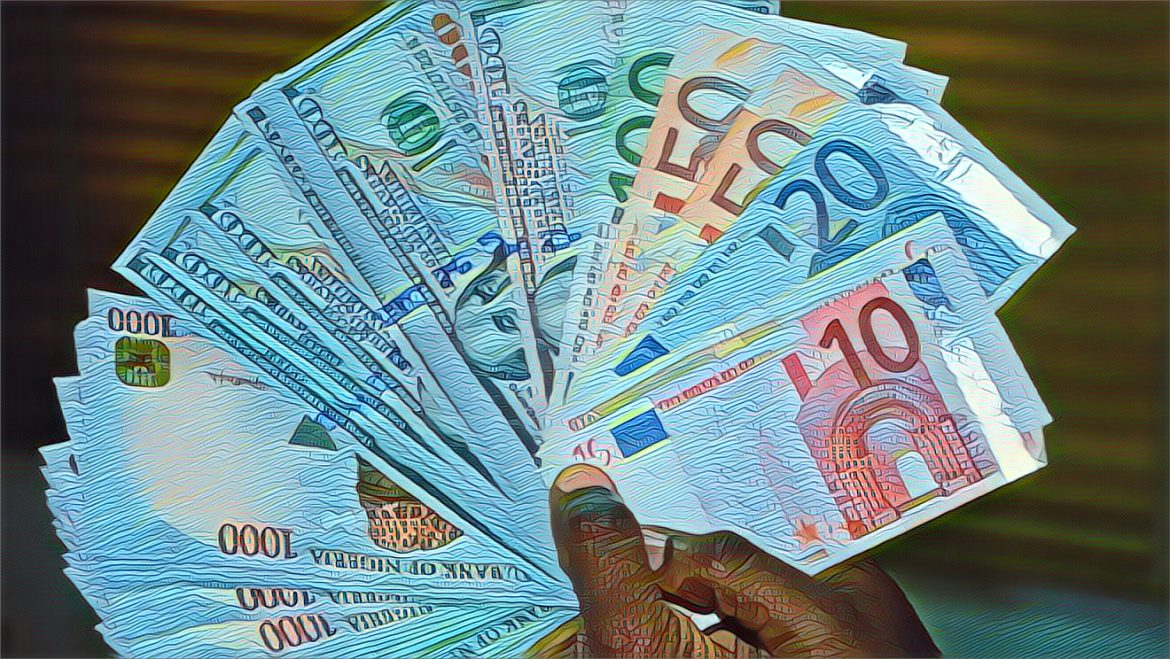The Nigerian naira started the year 2024 on a dismal note, losing 8.23 percent of its value against the US dollar at the official market on Tuesday.
According to data from the FMDQ, the naira weakened by N81.35 to close at N988.46 per dollar, compared to N907.11 on Friday, the last trading day of 2023.
The naira also depreciated by 5.6 percent at the parallel market, where it exchanged for N1,050 per dollar, down from N995 on Friday, according to AbokiFX, a website that tracks the unofficial rates.
The naira’s woes are attributed to the persistent dollar scarcity in the country, exacerbated by the low oil prices, weak foreign reserves, and slow economic recovery.
Nigeria, Africa’s largest economy and oil producer, relies heavily on oil exports for its foreign exchange earnings. However, the global oil market has been hit by the coronavirus pandemic, which reduced demand and prices.
The country’s foreign reserves stood at $32.912 billion as of December 29, 2023, according to the Central Bank of Nigeria (CBN), barely enough to cover seven months of imports.
The CBN has been struggling to defend the naira and maintain exchange rate stability, using various measures such as devaluation, unification, and rationing of forex to eligible sectors.
In late December 2023, the CBN received $2.25 billion of the long-awaited $3.3 billion foreign exchange support facility from the African Export-Import Bank (Afreximbank), which was expected to boost the reserves and ease the pressure on the naira.
However, analysts say the facility is not enough to address the structural imbalances and fundamental issues affecting the naira.
“The Afreximbank loan is a welcome development, but it is not a game-changer. It will only provide temporary relief for the naira, but it will not solve the underlying problems of dollar shortage, low productivity, and weak investor confidence,” said Bismarck Rewane, the chief executive officer of Financial Derivatives Company, a Lagos-based economic research firm.
Rewane added that the naira will continue to face downward pressure in 2024 unless the government implements bold reforms to diversify the economy, improve the business environment, and attract foreign direct investment.
Other experts also share a similar view, saying that the naira’s outlook for 2024 remains bleak unless the government and the CBN adopt a more flexible and market-driven exchange rate regime.
“We expect the naira to depreciate further in 2024, as the demand for dollars will outweigh the supply. The CBN’s interventions are not sustainable, and they create distortions and uncertainty in the market. The CBN should allow the market forces to determine the true value of the naira, and focus on addressing the inflation and liquidity issues,” said Oluwasegun Akinwale, a senior economist at Nova Merchant Bank.
Akinwale also said that the government should leverage the Afreximbank facility to implement structural reforms that will boost the non-oil sector, create jobs, and generate more foreign exchange for the country.
Despite the gloomy outlook, some analysts are optimistic that the naira will bounce back in 2024 if the government and the CBN take the right steps to restore confidence and stability in the forex market.
Muda Yusuf, the chief executive officer of the Centre for the Promotion of Private Enterprise, said that the naira’s fortunes will improve in 2024 if the government curbs oil theft and boosts crude output, and if the CBN clears the forex backlog and removes policy barriers to forex inflows.
Yusuf also said that the completion of the Dangote refinery, which is expected to start operations in 2024, will reduce the demand for imported petroleum products and save the country billions of dollars in forex.
“The naira has the potential to recover in 2024 if the right policies and actions are taken. The naira is not a hopeless case, it can be salvaged with the right mix of fiscal and monetary measures,” he said.
Source: Business Day


